Page last updated: September 29, 2019
All pages copyright © 2019 by Pinyon Publishing

A DOUBLE
LIFE
In Poetry & Translation
by Stuart Friebert
“There are fabled meetings with the likes of Günter Grass in Berlin and Paul Celan in Paris (not to mention the stray run-in with secret police in Bucharest before the fall of Ceausescu!). But Friebert also includes a sparkling homage to his late colleague, the co-founder of Umbra (with Langston Hughes and Alice Walker), Calvin Hernton. The volume richly concludes with an expert’s guide to teaching literary translation. Friebert sweeps us off to another time, a parallel universe where societies heed writers and their words, and in that, he has wrought something extraordinary. ‘Do you know where this is going?’ as one poem playfully asks. I urge you to read it and see!”
• Cynthia Hogue, author of Revenance and In June the Labyrinth
“A magical reality permeates this eminent collection. Figures such as Pavarotti, Werner Von Braun, Maya Angelou, and Günter Grass, encountered by the author in and through American and world literature, appear, illuminate, or center a narrative, and recede (or seem to) as, neocortex-like, the book folds upon itself and folds again, doubling and redoubling. “Speak from a distance or just be quiet,” Friebert, quoting an Italian colleague quoting La Fontaine, says. And A Double Life honors the dictum, blending perspective with speech. Commencing in 1949 when a science major taking a year abroad in Germany is “jolted” toward poetry by translation exercises in a mandatory humanities course, its timeline—rooted in a lifelong notetaking habit—ends with a flourishing précis on the art of teaching the art of translating poetry, that only a half-dozen decades of sleeves-up practice could muster.
“Notwithstanding the epic chronological view, there is a galloping immediacy here having as much to do with a steeplechase as the study. Friebert’s insistence on authenticity has led him over the years to seek out and spend time with many of the renowned writers whose work he’s “ferried” into English. In these pages we visit them too, enter their living rooms and cafés, encounter the armed agents of their dictatorships, join them on daytrips (e.g. a backstage viewing of restoration of The Last Supper), and lean with them over midnight tables and the words assembled there. Among these glowing episodes, we’re fortunate to find a generous selection of Friebert’s own “late” poetry. Very much on-time, among the richest and most resonant of his striking career, the poems take us deep within a driven literary diplomat, revealing private haunts and favorite fishing holes—tangible, textual, historical—of a long-legged sensibility reflecting, ardently, memorably, on the language of the world.”
• Dore Kiesselbach, author of Albatross and Salt Pier
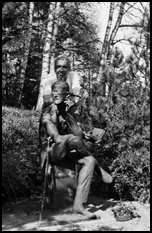 Born in Wisconsin, Stuart Friebert spent an undergraduate year in Germany as one of the first U.S. exchange students after WW II, after which he finished a BA at Wisconsin State College-Milwaukee and took an MA and a PhD at U. Wisconsin/Madison in German Language & Literature. He began teaching at Mt. Holyoke College, then at Harvard, and finally settled at Oberlin College, where he taught German and founded and directed Oberlin’s Creative Writing Program until retiring in 1997. Along the way, he co-founded Field Magazine, the Field Translation Series, and Oberlin College Press.
Born in Wisconsin, Stuart Friebert spent an undergraduate year in Germany as one of the first U.S. exchange students after WW II, after which he finished a BA at Wisconsin State College-Milwaukee and took an MA and a PhD at U. Wisconsin/Madison in German Language & Literature. He began teaching at Mt. Holyoke College, then at Harvard, and finally settled at Oberlin College, where he taught German and founded and directed Oberlin’s Creative Writing Program until retiring in 1997. Along the way, he co-founded Field Magazine, the Field Translation Series, and Oberlin College Press.
Friebert has published fifteen books of poems (including volumes in German), sixteen volumes of translations, anthologies, and more recently prose (stories, memoir pieces, and critical essays). He has held an N.E.A. Fellowship in poetry and received numerous awards for poems and translations, including the Four Way Book Award for Funeral Pie and the Ohioana Book Award for Floating Heart.
ALSO AUTHORED OR TRANSLATED BY STUART FRIEBERT
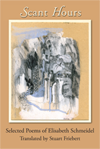 Scant Hours (2018)
Scant Hours (2018)
Selected Poems of Elisabeth Schmeidel, Translated by Stuart Friebert
6"x9" paperback
106 pages
978-1-936671-23-6
$17.00
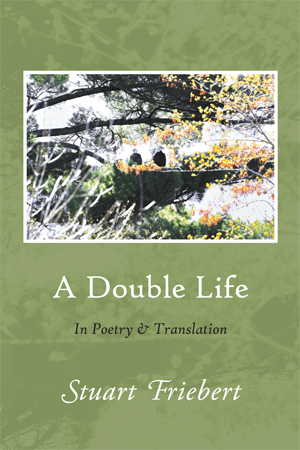
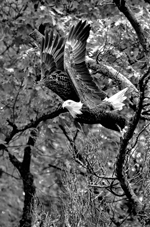
Praise for A Double Life:
“As recounted in the memoir-essays and poignant late poems in A Double Life, the distinguished co-founding editor of Field and poet-translator, Stuart Friebert, has led the kind of globe-trotting “double life” that makes for the stuff of legend.
With Eagle Photographs
by Steve Friebert
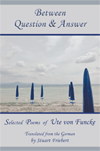 Between Question & Answer (2018)
Between Question & Answer (2018)
Selected Poems of Ute von Funcke, Translated by Stuart Friebert
6"x9" paperback
152 pages
978-1-936671-52-6
$18.00
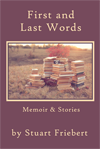 First and Last Words
First and Last Words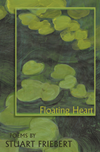 Floating Heart
Floating Heart